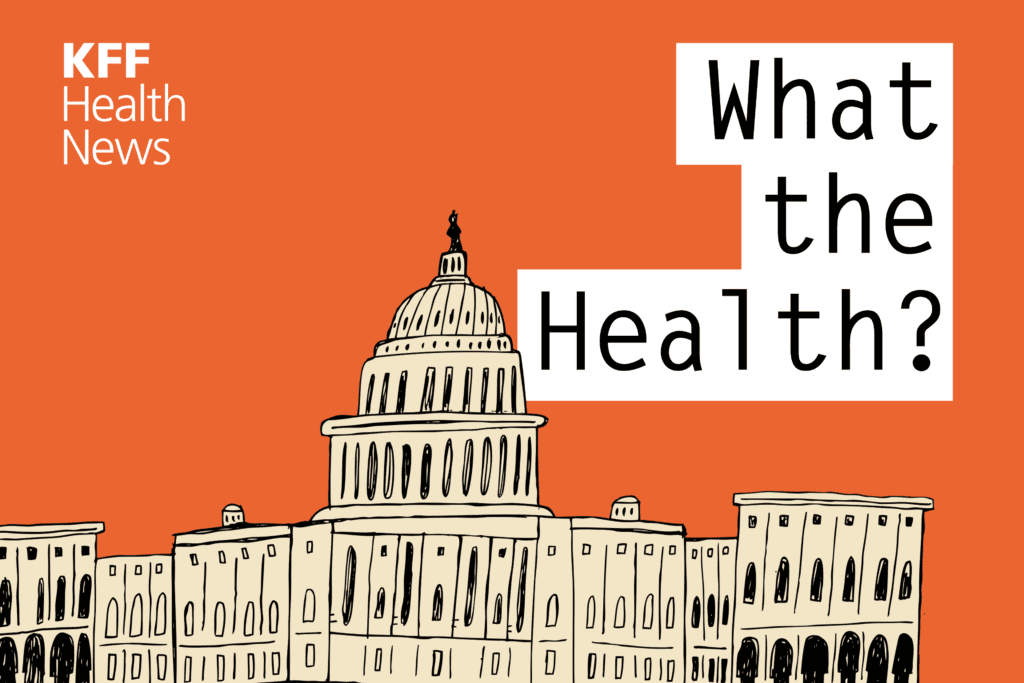Will They or Won’t They (Block the Abortion Pill)?

The Host
Supreme Court justices could act at any moment on access to the abortion pill mifepristone. Beyond reproductive health, their ruling could carry significant implications for states’ rights and FDA independence and integrity. For now, though, observers are unsure what the court will do — or what exactly prompted justices to again delay their decision this week.
At the Capitol, lawmakers grumbled, scoffed, and bickered this week as House Speaker Kevin McCarthy revealed the Republican proposal to cut government spending. The package would be dead-on-arrival in the Democratic-controlled Senate. But of note is the pushback from within McCarthy’s own caucus, with some hard-right conservatives pressing to go further by demanding the repeal of the Inflation Reduction Act in exchange for raising the debt ceiling.
And President Joe Biden pursued new efforts to grant legal status to young immigrants living in the country illegally who were brought here as children, sometimes called “Dreamers,” as his administration announced a plan to grant them access to government-funded health coverage.
This week’s panelists are Mary Agnes Carey of KFF Health News, Rachel Cohrs of Stat, Sandhya Raman of CQ Roll Call, and Joanne Kenen of the Johns Hopkins Bloomberg School of Public Health and Politico.
Among the takeaways from this week’s episode:
The Supreme Court extended its stay on the use of mifepristone through Friday, giving justices longer to act on a major, complicated case with nationwide implications for reproductive health. It is unclear what the court will do, though there are several actions it could take — including sending the case back to the lower courts or again extending the stay and buying justices even more time to come to agreement or pen dissents.
GenBioPro, which produces the generic version of mifepristone, sued the FDA on Wednesday, attempting to preserve access to the drug. About two-thirds of the mifepristone currently used in the United States is generic.
In congressional news, House Speaker McCarthy released what is effectively Republicans’ opening offer in the fight over raising the debt ceiling. The package includes GOP health priorities that would not garner needed support in the Senate, like work requirements for Medicaid and the clawback of unspent covid-19 pandemic funds.
While health costs are high across government programs, Medicaid takes the big hit in the Republican proposal to cut federal spending. Republicans have embraced work requirements for government assistance since at least the 1980s, yet in Arkansas — a state that implemented work rules for Medicaid — it has proved challenging to verify that enrollees are meeting those requirements.
The Senate Finance Committee, which has jurisdiction over much of federal health spending, revealed a package this week to tackle drug pricing. While the proposal is in the early stages, it seeks to incorporate bipartisan measures touching pharmacy benefit managers, insulin users, and more.
And on the coverage front, the Biden administration announced that immigrant kids brought to the United States who remain here under the Deferred Action for Childhood Arrivals program will be able to apply for Medicaid and Affordable Care Act coverage. This eligibility expansion comes as states prepare to disenroll those who no longer qualify for Medicaid as the public health emergency’s coverage protections expire. Expect a fight from some states as they resist being forced to cover insurance for individuals living in the U.S. without legal permission.
Email Sign-Up
Plus, for “extra credit,” the panelists suggest health policy stories they read this week that they think you should read, too:
Mary Agnes Carey: The New York Times’ “A Beauty Treatment Promised to Zap Fat. For Some, It Brought Disfigurement,” by Anna Kodé
Joanne Kenen: The New York Times’ “My Transplanted Heart and I Will Die Soon,” by Amy Silverstein
Sandhya Raman: ABC News’ “Puerto Rico’s Water Supply Is Being Depleted, Contaminated by Manufacturing Industry on the Island, Experts Say,” by Jessie DiMartino, Lilia Geho, and Julia Jacobo
Rachel Cohrs: The Wall Street Journal’s “‘I Hate You, Kathie Lee Gifford!’ Ozempic Users Report Bizarre Dreams,” by Peter Loftus
To hear all our podcasts, click here.
And subscribe to KFF Health News’ ‘What the Health? on Spotify, Apple Podcasts, Stitcher, Pocket Casts, or wherever you listen to podcasts.
Related Topics
Contact Us
Submit a Story Tip




